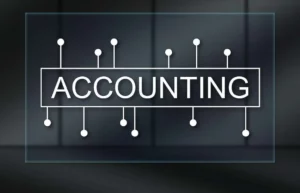Church payroll is a process of providing ministers, staff members, volunteers, and contract workers with timely compensations to ensure satisfaction. Its key difference from regular payments is that it includes housing allowances for clergy. In this guide, we will analyze the key steps of setting up payroll for pastors to demonstrate how you can maintain strict IRS adherence and adopt the most efficient compensation practices.
Understanding Church Payroll
Following the Fair Labor Standards Act (FLSA) is crucial as it allows organizations to issue timely payments and keep records while adhering to laws. Utilizing full-time equivalent (FTE) to measure the workload facilitates budgeting.
Houses of worship face serious challenges:
- Calculating housing allowances;
- Working with employees with dual tax status;
- Collecting data about various sources of income.
Embracing time-tested practices contributes to improved employee morale and allows achieving higher satisfaction.
Setting Up Church Payroll
Choosing dedicated software designed specifically for religious organizations without deciding what features it should have is an arduous process. Most programs facilitate performing the following tasks:
- Making direct deposits;
- Automatically calculating the right amount of taxes;
- Managing payroll;
- Handling donations and fundraising campaigns;
- Comparing performance metrics.
Many people wonder: “How do small churches handle payroll?” Nonprofits of all sizes cannot do without using dedicated software. The best solutions, such as MinistryWorks, IconCMO, and ACS, are fully compliant with state regulations and have intuitive functionality. Utilizing them facilitates automated pay management, tax filing, and cash flow tracking.
After selecting a suitable program, make sure to register as an employer with the IRS by following these steps:
- Checking eligibility: A church should be located in the U.S.
- Filing an online application: Provide all the details and fill the Form SS-4 within 15 minutes.
- Getting an Employer Identification Number (EIN): After completing the previous steps and submitting the required data, you will get a confirmation notice with an EIN.
As every state has specific registration requirements, clarify them with local tax authorities. Completing a W-4 form may be also helpful.
Payroll Compliance for Churches
Observing regulations necessitates learning more about legal requirements. Religious organizations must adhere to the general IRS guidelines:
- File taxes before deadlines;
- Ensure the accuracy of bookkeeping records;
- Perform employee classification.
Meeting federal-level obligations is also necessary, including deducting the Federal Insurance Contributions Act (FICA) tax and covering Social Security tax and Medicare (SECA). Churches are eligible to claim tax exemptions. They can do it by completing Form 8274. Licensed ministers can get the ministerial exemption.
As tax laws vary depending on the state, houses of prayer should learn about the intricacies of income tax withholding laws, file tax returns within specified deadlines, make timely deposits, and indicate accurate amounts.
If a church meets IRC Section 501(c)(3) requirements, it is tax-exempt by default, so there is no need to get official recognition of the status.
Managing Employee Compensation
Getting in-depth knowledge about various types of remuneration, including base salaries, bonuses, and stipends, streamlines payrolling. Churches typically pay the following compensations:
- Regular salaries (staff members);
- Housing allowances (ministers);
- Stipends (volunteers, self-employed workers, and part-timers).
Covering health insurance and retirement benefits is also crucial to ensure that every staff member will be fully engaged. Fostering trust requires providing employees with fair compensation. It requires considering these factors:
- Duties and obligations an employee fulfills;
- The existing compensation rules within religious institutions;
- Cost of living in the area.
Keeping staff members and other workers satisfied requires making regular salary reviews and offering career development opportunities. Maintaining mistake-free records and reporting accurate compensation amounts is vital.
Religious organizations should strive to keep their records to avoid issues during audits. Professional payroll software facilitates maintaining documentation and performing other tasks. Besides ensuring the accuracy of their records, businesses must timely update them to describe any changes.
Payroll Deductions and Benefits
Before integrating digital products with your system, it is crucial to learn about managing common deductions and benefits. Staff members working at such institutions should be aware of such deductions:
- State and federal taxes;
- FICA paycheck deductions;
- Payments made to retirement accounts.
In addition, employees may decide to cover health insurance premium plans and pay voluntary donations supporting specific causes.
As calculating deductions is a cumbersome process, religious institutions should strictly follow time-tested guidelines:
- Keep updated about current tax rates and limits;
- Deduce the right amounts from salaries;
- Remit taxes and other funds within the established deadlines.
Most churches cover basic healthcare insurance and offer paid time off to their workforce members to prevent burnout. Moreover, they may motivate their staff by offering them a 403(b) retirement savings plan, covering maternity leave, and providing assistance with scholarships and student loans.
Managing benefit programs requires making employees aware of the benefits they can get and helping them with enrollment. Some nonprofits offer life insurance to their personnel.
After identifying what benefits appeal to the personnel the most, churches should track the enrollment data and offer an opportunity to switch to better programs. Clear communication is the prerequisite to managing benefits for religious organizations, as it fosters transparency and trust.
Record Keeping and Reporting
Maintaining records free of any discrepancies is the cornerstone of managing payroll. They should contain accurate information about employees, work hours, wages, benefits, and deductions. Like other nonprofits, churches are obliged to store these records for 3 to 7 years, depending on the location in which they are registered.
There are multiple advantages of maintaining a transparent system:
- Achieving compliance: Paying your personnel legally ensures that you follow regulations.
- Saving time: Even though it might take a house of worship a while to set up payroll, running it will be easy when everything is ready.
- Workforce satisfaction: Paying salaries on time is important to keep workers happy.
- Financial reporting: When documentation contains precise information about pay, filing and submitting reports becomes easier.
Churches must file tax returns quarterly (Form 941) and submit annual reports (W-2 form and 1099 form) to minimize fees and penalties. Utilizing trusted payroll software allows them to automate calculations and generate reports.
Analyzing data to detect possible mistakes, using programs to meet deadlines, and going through audits are the further steps a religious institution can take.
Leveraging Technology for Church Payroll
Utilizing dedicated programs allows houses of worship to avoid mistakes resulting in significant financial expenses and wasted time. Such software automates processes and facilitates making calculations, direct deposits, and tax deductions.
For instance, using QuickBooks and other platforms allows users to file taxes automatically and prepare custom reports while adhering to federal and state regulations. Such digital services integrate with legacy accounting systems, which streamlines their adoption.
Here are the most common features of such software:
- Tax exemption tools;
- Support of various compensation types;
- Housing allowance management features.
These programs have well-thought-out user interfaces and helpful customer support teams. They allow users to automatically file tax forms.
Here are the most recommended church payroll services:
- Gusto: The most intuitive UI;
- MinistryWorks: Designed in accordance with current laws;
- PowerChurch Plus: Efficient billing system;
- IconCMO: Adherence to FASB guidelines.
In addition, some institutions prefer to rely on FellowshipOne as it automatically tracks payments to eliminate duplicate records in a general ledger. Others utilize CDM+ as this cloud-based platform allows staff members to see their pay history and deductions. The fact that it has a mobile version adds to its indisputable appeal, making it accessible from anywhere.
These programs optimize bookkeeping and help nonprofits control their budgets while compensating their workforce.
Final Words
Leveraging technology streamlines payroll for churches and allows such organizations to embrace the best practices to pay compensations without delays. Considering various types of employees and exemptions, automating processes, and compiling accurate reports require professional assistance to ensure compliance.
If you want to pay compensations on time but face difficulties trying integrating church accounting software into your systems, get in touch with the BooksTime team and optimize the process of paying compensations!


















